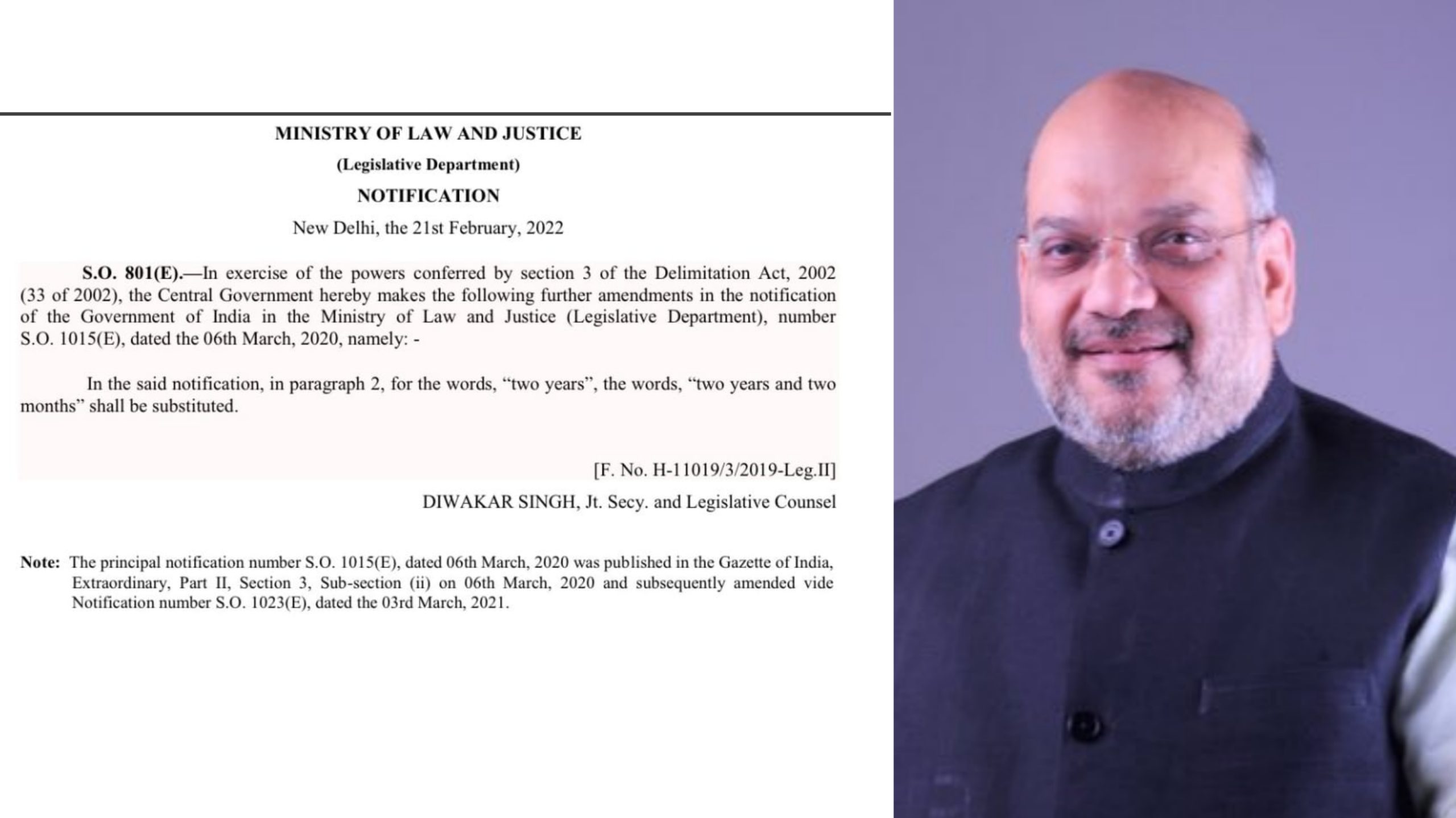Srinagar: A day after Union Home Minister, Amit Shah announced that Assembly elections in Jammu and Kashmir will be held within six to eight months after completion of the Delimitation Commission exercise, central government gave two month extension to panel on Tuesday.
“In exercise of the powers conferred by section 3 of the Delimitation Act, 2022 (33 of 2002), the Central Government hereby makes the following further amendments in the notification of the Government of India in the Ministry of Law and Justice (Legislative Department), number S.O. 1015(E) dated the 06th March 2020 namely: In the said notification, in paragraph 2, for the words, ‘two years’, the words, ‘two years and two months’, shall be substituted,” reads the notice of Ministry of Law and Justice.
On December 20, the Delimitation Commission shared a draft proposal with MPs from Jammu and Kashmir — three from the National Conference (Farooq Abdullah, Mohammad Akbar Lone and Hasnain Masoodi) and two from the BJP (Union Minister Jitendra Singh and Jugal Kishore Sharma). The MPs are associate members of the commission, which was set up following the revocation of Article 370 that accorded special status to Jammu and Kashmir. The commission is headed by Justice (retired) Ranjana Prakash Desai and has Chief Election Commissioner Sushil Chandra and state election commissioner as members.
The draft proposal recommends increasing the number of assembly seats in Jammu from 37 to 43 and in Kashmir from 46 to 47, taking the strength of the assembly to 90 from 83 (earlier, the assembly had four seats for Ladakh, which is now a Union territory, and 24 seats were reserved for Pakistan-occupied Kashmir). As per the draft proposal, Jammu will have one new constituency in the districts of Udhampur, Kathua, Samba, Doda, Kishtwar and Rajouri and Kashmir will have one in Kupwara district. The commission has also reserved nine seats for the Schedule Tribes and seven for the Scheduled Castes.
Delimitation exercises are not new to Jammu and Kashmir — they have taken place in 1963, 1973 and 1995 when the erstwhile state was under President’s rule.
Major political parties in Jammu and Kashmir have rejected the Delimitation Commission’s draft proposal, saying it favours the Jammu region over the Muslim-dominated Kashmir and aims to tilt the electoral balance in the former’s favour. The People’s Alliance For Gupkar Declaration (PAGD) — an alliance of regional parties that seeks the restoration of Article 370 and statehood to Jammu and Kashmir — accused the commission of acting on the BJP’s behest and ignoring the fact that Kashmir’s population was 15 lakh more than Jammu’s as per the 2011 Census.
It needs to be mentioned here that extended term of the Delimitation Commission is ending on March 6. With extension and if the Commission submits report in June, going by Home Ministers yesterday’s statement, the Assembly elections in Jammu and Kashmir can be held either in November-December this year or March-April next year.
It may be mentioned here that 2008 and 2014 Assembly elections in Jammu and Kashmir were also held in the months of November-December.
Jammu and Kashmir is without an elected Government since June 19, 2018, that is for last more than three and half years when BJP had withdrawn support to Mehbooba Mufti-led PDP-BJP coalition Government leading to imposition of Central rule in the State which was later bifurcated into two Union Territories of J&K and Ladakh and its special status withdrawn on August 5, 2019.









